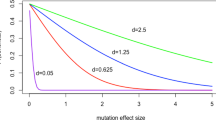Abstract
Evolutionary epistemologists aim to explain the evolution of cognitive capacities underlying human knowledge and also the processes that generate knowledge, for example in science. There can be no doubt that our cognitive capacities are due in part to our evolutionary heritage. But this is an uninformative thesis. All features of organism have indeed been shaped by evolution. A substantive evolutionary explanation of cognition would have to provide details about the evolutionary processes involved. Evolutionary epistemology has not provided any details. Considering progress of theorizing in science, evolutionary epistemologists have proposed many different analogies between natural selection and selection in science. As yet, the analogies have not been fruitful. The entire program of evolutionary epistemology is programmatic. Evolutionary epistemologists have also moved beyond explanation to justification, the primary issue in traditional epistemology. It turns out that their program presupposes that we can justify knowledge claims in traditional ways. Evolutionary biology is not a proper tool for the justification of beliefs.
Similar content being viewed by others
REFERENCES
Abraham, J. (1995). Science, Politics and the Pharmaceutical Industry: Controversy and Bias in Drug Regulation. London: UCL Press.
Amundson, R. (1989). The trials and tribulations of selectionist explanations. In: K. Hahlweg and C. Hooker (eds), Issues in Evolutionary Epistemology. Albany: State University of New York Press, pp. 413–432.
Bechtel, W. (1989). An evolutionary perspective on the re-emergence of cell biology. In K. Hahlweg and C. Hooker (eds), Issues in Evolutionary Epistemology. Albany: State University of New York Press, pp. 433–457.
Bradie, M. (1986). Assessing evolutionary epistemology. Biology and Philosophy 1: 401–459.
Bradie, M. (1989). Evolutionary epistemology as naturalized epistemology. In: K. Hahlweg and C. Hooker (eds), Issues in Evolutionary Epistemology. Albany: State University of New York Press, pp. 393–412.
Campbell, D.T. (1974). Evolutionary epistemology. In: P.A. Schilpp (ed.), The Philosophy of Karl Popper I. LaSalle, Illinois, Open Court, pp. 413–463.
Dawkins, M.S. (1993). Through Our Eyes Only? The Search for Animal Consciousness. New York: Freeman.
Gatens-Robinson, E. (1993). Why falsification is the wroing paradigm for evolutionary epistemology: An analysis of Hull's selection theory. Philosophy of Science 60: 535–557.
Hahlweg, K. (1988). Epistemology or not? An inquiry into David Hull's evolutionary account of the social and conceptual development of science. Biology and Philosophy 3: 187–192.
Hahlweg, K. (1989). A systems view of evolution and evolutionary epistemology. In: K. Hahlweg and C. Hooker (eds), Issues in Evolutionary Epistemology. Albany: State University of New York Press, pp. 45–78.
Hull, D.L. (1988a). A mechanism and its metaphysics: An evolutionary account of the social and conceptual development of science. Biology and Philosophy 3: 123–155.
Hull, D.L. (1988b). A period of development: A response. Biology and Philosophy 3: 241–263.
Hull, D.L. (1988c). Science as a Process: An Evolutionary Account of the Social and Conceptual Development of Science. Chicago and London: University of Chicago Press.
Kantorovich, A. (1989). A genotype-phenotype model for the growth of theories and the selection cycle in science. In: K. Hahlweg and C. Hooker (eds), Issues in Evolutionary Epistemology. Albany: State University of New York Press, pp. 171–184.
Levins, R. (1966). The strategy of model building in population biology, American Scientist 54: 421–431.
Levins, R. (1968). Evolution in Changing Environments. Princeton: Princeton University Press.
Oldroyd, D. (1990). David Hull's evolutionary model for the progress and process of science. Biology and Philosophy 5: 473–487.
Payer, L. (1992). Disease Mongers: How Doctors, Drug Companies, and Insurers Are Making You Feel Sick. New York: Wiley.
Popper, K.R. (1972). Objective Knowledge: An Evolutionary Approach. Oxford: Clarendon Press.
Ruse, M. (1986). Taking Darwin Seriously. New York: Blackwell.
Ruse, M. (1989). The view from somewhere: A critical defense of evolutionary epistemology. In: K. Hahlweg and C. Hooker (eds), Issues in Evolutionary Epistemology. Albany: State University of New York Press, pp. 185–228.
Shear, J. (1995). Explaining consciousness: The hard problem. Cambridge, Massachusetts: MIT Press.
Stelfox, H.T., G. Chua, K. O'Rourke, and A.S. Detsky (1998). Conflict of interest in the debate over calcium-channel antagonists. New England Journal of Medicine 338: 101–106.
Tennant, N. (1988). Theories, concepts and rationality in an evolutionary account of science. Biology and Philosophy 3: 224–231.
Thompson, P. (1995). Evolutionary epistemology and scientific realism. Journal of Social and Evolutionary Systems 18: 165–191.
Van der Steen, W.J. (1986). Methodological problems in evolutionary biology: VI. The force of evolutionary epistemology. Acta Biotheoretica 35: 193–204.
Van der Steen, W.J. (1995). Facts, Values, and Methodology: A New Approach to Ethics. Amsterdam and Atlanta: Rodopi.
Van der Steen, W.J. (1998). Bias in behavior genetics: An ecological perspective. Acta Biotheoretica 46: 369–377.
Author information
Authors and Affiliations
Rights and permissions
About this article
Cite this article
van der Steen, W.J. Methodological Problems in Evolutionary Biology. XIII. Evolution and Knowledge. Acta Biotheor 48, 73–84 (2000). https://doi.org/10.1023/A:1002699502841
Issue Date:
DOI: https://doi.org/10.1023/A:1002699502841




